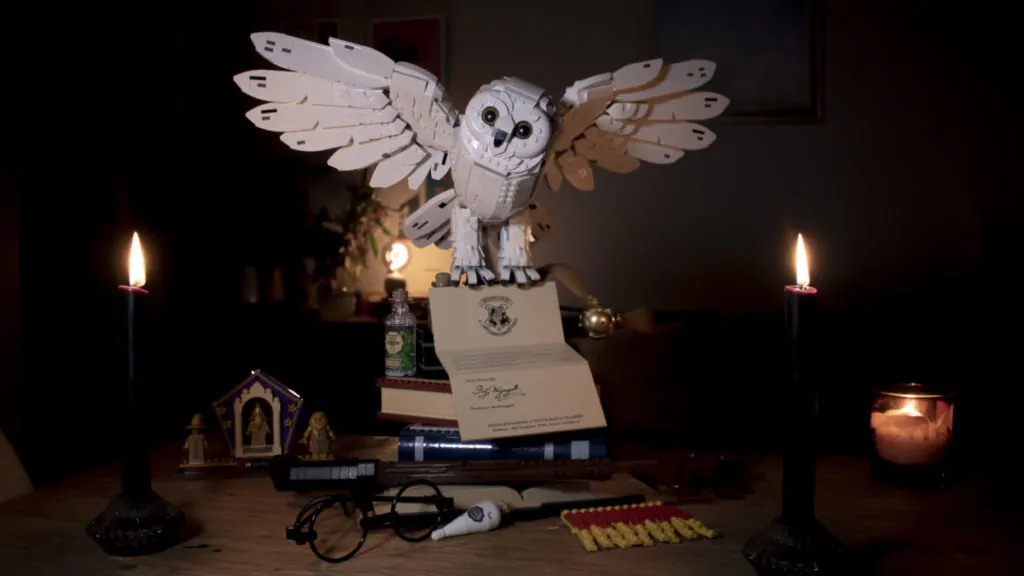
Since its debut in 1997, the Harry Potter franchise has grown into a cultural juggernaut. The original seven books have sold more than 500 million copies, while the films they inspired have become the third highest-grossing film series in the world. The franchise has also spawned a wide array of merchandise, including LEGO sets.
But while we serve our readers – LEGO Harry Potter fans – by reporting on new products, the wider franchise and other key developments, it’s important to also add appropriate context to those stories by highlighting current controversies surrounding the series’ creator, J.K. Rowling.
In late 2019, Rowling began to make a number of divisive comments relating to transgender people. She expressed public support for Maya Forstater – a British tax researcher accused of transphobic comments that had, in turn, deprived her of employment. While Forstater was not technically fired from her job – her employer, a think tank, chose not to renew her contract – Rowling claimed in a tweet that Forstater had been ‘fired for stating sex is real’, a claim widely interpreted as simplistic and offensive.
Several months later, in 2020, Rowling published a tweet inspired by an article on ‘people who menstruate’. Her comments seemingly implied that the article’s choice of words was erasing women (a claim debunked by the article itself) and attracted further controversy. This tweet was followed by an extensive essay, which laid out Rowling’s opinions on transgender people in more detail.
In her essay, Rowling expressed various concerns about transgender people. She argued that they were transitioning too hastily and that today’s youth were suffering from Rapid Onset Gender Dysphoria (the existence of which has been conclusively debunked). She also claimed that allowing transgender people access to public spaces (like toilets) was making women and girls more unsafe, by giving predatory men a cover to attack them.
The essay attracted various online critiques, arguing that its claims were sweeping and vague with no credible sources for any of them. Writing for Gender Analysis, Zinnia Jones claimed that – rather than an argument for the protection of women and children – Rowling’s essay called for ‘the total nonexistence of trans people’.
Since the essay’s publication Rowling has continued to comment about transgender people. A November 2021 statement affirmed her commitment to ‘sex-based rights’ – a term that currently carries no legal weight in the UK.
Rowling’s comments have attracted dismay from some Harry Potter fans, and encouraged stars of the films – including Daniel Radcliffe, Rupert Grint and Emma Watson – to issue their own statements in support of transgender people. Other people and groups have also produced resources that contradict Rowling’s arguments.
For instance, LGBT+ charity Stonewall has assembled a web page addressing common preconceptions about transgender people. It argues that – rather than being predators or a threat to children – transgender people today face significant challenges, including access to vital healthcare and legal recognition.
Elsewhere, biologist Julia Serano has debunked common myths about transgender people, drawing parallels between transphobia and other prejudices such as racism and homophobia, and arguing that transphobia is just as illegitimate an idea as those two are.
In 2021 the advocacy group ILGA-Europe criticised anti-trans rhetoric within the UK, citing J.K. Rowling – by name – as an example of harmful transphobic activity.
ILGA-Europe’s report reflects broader issues with UK news outlets, which have been criticised overseas for their discriminatory content. Even respected news outlets, such as the BBC and the Guardian, have come under fire for running transphobic content on their websites.
The current anti-trans furore appears to be having an impact on other marginalised groups, and is contributing to the UK’s worsening track record on LGBT+ rights. Between 2019 and 2020 anti-trans hate crimes within the UK increased by 16%, while hate crimes inspired by sexual orientation increased by 19%.
Although these figures could (partially) be explained by improved reporting, the broader picture for the UK is still a negative one. As of 2022 it is also getting steadily worse, with the UK continuing to slide down a ranking of Europe’s most LGBT+ friendly countries.
But how does all this connect to the LEGO Harry Potter range? In 2018, the LEGO Group launched a new line of LEGO sets inspired by the Harry Potter movies. Harry Potter sets have appeared every year since, and in 2022 the LEGO Group revealed that Harry Potter was among its most popular themes. And as with all Harry Potter merchandise, J.K. Rowling presumably receives royalties from the sale of LEGO sets inspired by her works.
This is something that other Potter-related merchandise, such as the Hogwarts Legacy video game, has attempted to address. In 2020, Warner Bros. issued a statement saying that Rowling was not involved with the game’s development. The LEGO Group itself has taken a similar approach, arguing that its partnership is with Warner Bros. rather than Rowling herself and highlighting its own charitable actions.
LEGO Harry Potter fans may not share the same views expressed as Rowling, even be aware of her statements made or realise the potential impact that they have had. As a journalistic entity, we owe it to our fans to present the facts to allow you to make an informed decision.
The choice to purchase LEGO Harry Potter products is ultimately up to you, as is the choice we make to continue to promote LEGO Harry Potter products, and doing so does not necessarily reflect support for J.K. Rowling or a sharing in the views she has expressed.
At the same time, if you would like to specifically demonstrate support towards those directly impacted by the issues discussed here, consider donating to charities that support transgender people, such as Stonewall and TransActual.




